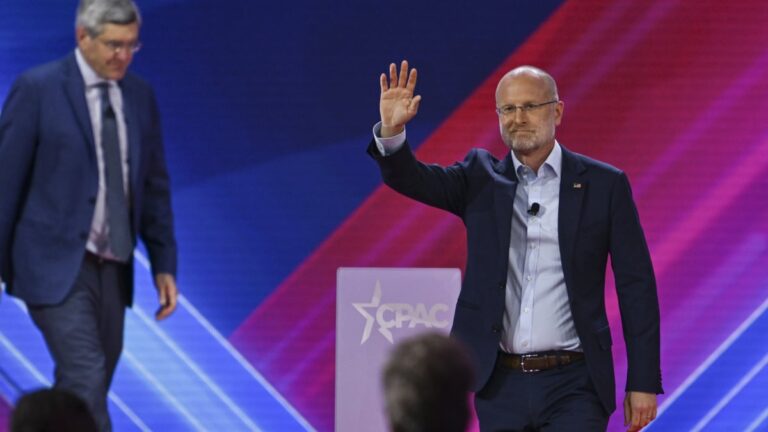Trump is running down his list of administration appointees, landing this week on Brendan Carr as the new pick for Federal Communications Commission (FCC) Chair.
Carr, current FCC commissioner and its top Republican member, was nominated for the FCC by Trump in 2017 after serving as general counsel and as an advisor to former Chair Ajit Pai. His term has since been extended to 2029, and in the seven years he’s served on the commission, Carr has been a vocal, partisan opponent to Net Neutrality and the Biden Administration’s tentpole broadband subsidies.
Carr is also the author behind the controversial Project 2025 mandates for the FCC, focused heavily on Communication Act’s Section 230 and content moderation online — he’s also buddies with leader of the new “Department of Government Efficiency” Elon Musk.
PSA: Your Twitter/X account is about to change forever
Calling Carr a “warrior for Free Speech” in a battle against “regulatory Lawfare” — a phrase used by Carr to refer to the revocation of a $885 million FCC grant to Musk’s Starlink — Trump applauded the commissioner’s plan for a revamped FCC landscape. “He will end the regulatory onslaught that has been crippling America’s Job Creators and Innovators, and ensure that the FCC delivers for rural America,” the president-elect wrote.
So where does the new Chair stand on the big issues?
Mashable Top Stories
Net Neutrality and Section 230
The new Trump appointee was a central opponent to the FCC’s restoration of landmark Net Neutrality laws, previously repealed during Trump’s first administration and former chair Pai. Carr argued at the time that such regulations would have a negative impact on rural areas, increasing rates and slowing down infrastructure builds. The increasingly partisan issue has drawn clear lines between Republican and Democrat FCC members, and as the fate of Net Neutrality gets batted back and forth in court, many proponents of an “Open Internet” fear a Republican-controlled FCC could doom its fate.
Carr has also taken a hard line against the immunities included in Section 230. Included among a list of Project 2025 recommendations, the commissioner wrote, “The FCC should work with Congress on more fundamental Section 230 reforms that go beyond interpreting its current terms. Congress should do so by ensuring that Internet companies no longer have carte blanche to censor protected speech while maintaining their Section 230 protections. Reforms that prohibit discrimination against core political viewpoints are one way to do this… [Congress] could focus legislation on dominant, general-use platforms rather than specialized ones. This could include excluding comment sections in online publications, specialized message boards, or communities within larger platforms that self-moderate.”
Carr singled out tech giants like Facebook, Google, Apple, and Microsoft as a “censorship cartel,” pledging to take them on under a new administration. Additionally, Carr has backed a total federal ban on TikTok.
Free speech, diversity, and accessibility
Shortly after the announcement, Carr posted to X that he would end its promotion of diversity, equity, inclusion, and accessibility, the agency’s “second-highest strategic goal” outlined in its recent budget proposal. “When it comes to the FCC’s promotion of DEI, I have just one thing to say: Afuera!” added Carr.
Carr has previously echoed Trump’s stance against “political bias” and moderation within “mainstream media.” After the announcement, Carr posted: “We must dismantle the censorship cartel and restore free speech rights for everyday Americans.”
One potential hit? Broadcast media’s use of public airwaves. In yet another X post, Carr wrote, “Broadcast media have had the privilege of using a scarce and valuable public resource—our airwaves. In turn, they are required by law to operate in the public interest. When the transition is complete, the FCC will enforce this public interest obligation.”
The commissioner has publicly aligned himself with Trump’s desire to slash regulations, revoke licenses, and punish media networks for publishing with “bias.”
